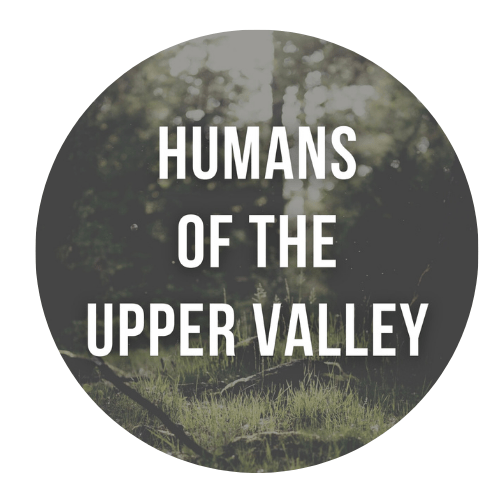“I came to the Upper Valley in 2010. Five years later, my mom was diagnosed with pancreatic cancer, and watching her live with serious illness while processing my own anticipatory and preparatory loss made me more aware of my personal relationship with my work. I started a graduate program on Thanatology, which is the study of death, dying, and bereavement with a focus on grief and loss support.
My mom died 11 months after diagnosis, and with that experience, I needed time to grieve and center in my healing and growth as a person before focusing on how to support others. After that pause, I was grateful that a role opened up here at the Jack Byrne Center. Within this role, I have been able to support and train volunteers and focus on bereavement support for individuals and groups, recognizing that the threads of connection in grief are important when they are witnessed and shared. There is a sense of sacredness that comes with being with people in a time of vulnerability, in knowing that there is nothing that could be said or done to take away the pain of the experience. But to be present and to listen to what that experience is helps people to feel seen and heard and understood.
I am the mother of a 10-year-old child who asks amazing questions and prompts me to think in deceptively simple ways. We, as adults, have more lived experiences and knowledge, and we tend to go into new experiences with our personal biases coloring our perceptions. When we have younger people in our lives, they can help us see those moments more clearly without interpretation. When my mom was sick, my son would ask such profound questions like, “Are there windows in heaven?” It is so important to ask humbling questions related to life circumstances or the state of the world such as “Why is this happening?” To have a kid ask you those questions, it definitely makes you question yourself even more.
In periods of grief, it is important to lean towards the people you care about who are suffering. I think we have a natural response to step back from those things. When we are open to sitting in the difficulties and sitting in the hard feelings, that is when the community comes together and can grow in strength and potential. When we move away from those things, it lessens that sense of belonging.
Holding space is knowing that it’s not about us. It’s about creating a container for the people before us to come together to share memories and stories and love for each other. I would say that is one of the things I value most about the work, seeing people shine and connect with one another in moments of loss. Finding ways where people can continue to share and feel heard and know that their lives matter and the lives of the people that they love and remember and grieve matter. Share stories. Everyone has a story, and everyone’s story is meaningful. “
– Kristen Johnson, New London, NH




